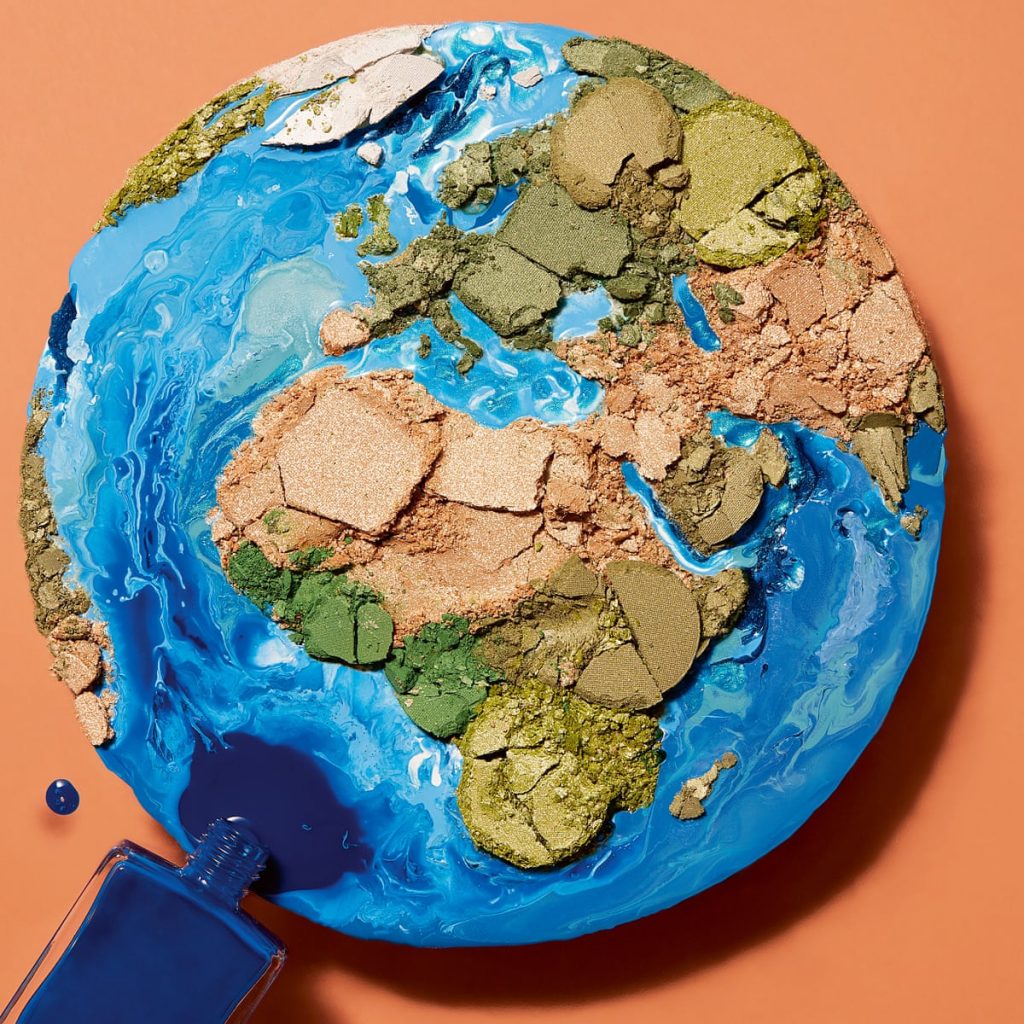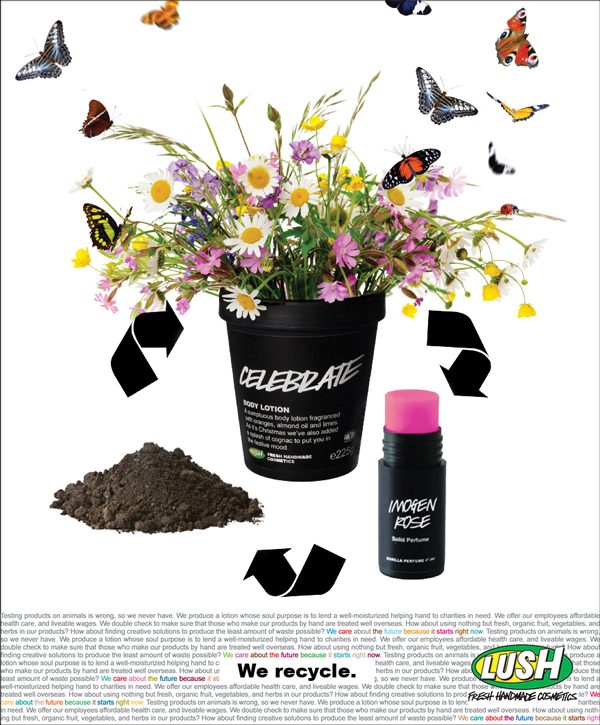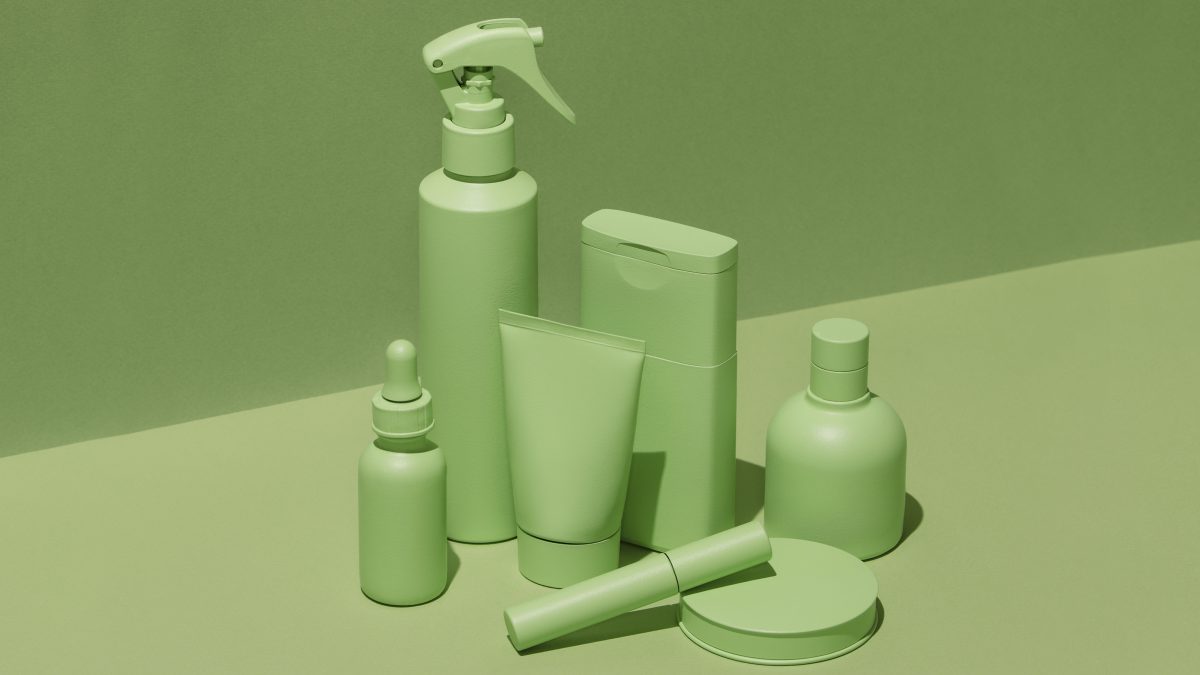- À New Wave to Fashion, À New Way of Living. Download Now on iOS Android Canada SS22
- hello@alahausse.ca
Lush Gets a Makeover: Going Green

Lack of Plus-size Representation in Sustainable Fashion
August 11, 2021
How the Pandemic is Shifting Sustainability in the Fashion Industry
August 11, 2021
Written by Jennie Yang, Edited by Danté Lusson
In the cosmetics retail industry, competition is plentiful. With fierce competition from the likes of Avon Products, Sephora, and L’Oreal, it is an industry that is fast-paced. Before, Lush has fallen behind in their flagship store in regards to sustainability and ethical measures. In fact back in 2019, Lush received poor ratings for supply chain management per the organization Ethical Consumers. In addition, Lush has been using toxic chemicals like palm oil additives in packaging and products. Currently, they have pledged to be more environmentally sustainable by eliminating palm oil derivatives in products and creating reusable packaging materials. As of mid 2021, Lush has completely revamped their flagship store on London’s Oxford Street to reflect sustainability and include various aspects of its global stores as well.

The Effects of the Cosmetics Industry
120 billion units of packaging are produced every year by the global cosmetics industry, a number seemingly unmatched. If this trend continues, there will be more than eleven million tons of plastic in the ocean. By 2050, there could be more plastic in the ocean than fish. With the coronavirus pandemic, situations have worsened with the high demand for surgical masks and the influx of online shopping from greenwashing retailers like H&M.
With over 633 different oceanic species being impacted by heavy pollution, the situation has become dire. There have been reported cases of fish being affected by chemical toxicity that has caused problems with breeding. Furthermore, anchovies are actually consuming these microplastics. They are then eaten by larger fish, which we humans then consume later on. Ultimately, pollution has led to negative effects for all living organisms on the planet.
It is an ongoing fight as businesses struggle to balance the bottom line and sustainability efforts. However, Lush is making a big push to do so with its newly revamped flagship store that not only expects sustainable practice, but also makes a global impact with their borrowed aspects from other sister stores.
Inspirations from Global Stores
To begin with, Lush has incorporated a Fresh&Flower concept as borrowed from their store in Paris, France. Face, body, and hair products are offered along with an in-store florist ready to sweeten things up. In addition, Lush has added its own perfume library where consumers can browse rows and rows of scents and fragrances. They have also added an element borrowed from the Tokyo store where consumers can now scan an item to find out its information and makeup. To add to the relaxing atmosphere, Lush has also implemented their own spa where there are treatment rooms available for customers to relax and pacify the mind, body, and soul.
Finally, Lush has also incorporated a small coffee establishment within the store. PlantWorks serves vegan coffee, and consumers can grab a hot cup of coffee, get a relaxing treatment and overlook the city at its finest. By revamping their flagship store, they are affirming the fact that the consumer comes first. Lush is emphasizing that how the consumer feels and how he or she is treated is of utmost importance.

Going Green
While Lush has received their fair shares of negative feedback in regards to sustainability, they are still solid participants in the field. They have offered credit upon every black pot product returned to the store and have been adamant on their stand against animal testing. Products like lipstick and concealer are all free of wasteful packaging. Makeup brushes are vegan, allowing them to mimic the feel of natural fibers.
As far as interior design goes, the wood of the floors is either reclaimed or directly approved by the U.K.’s Forest Stewardship Council. The wall and the floor tiles are also made of recyclable materials, and the LED lighting system is very efficient and not wasteful. With a more streamlined view, there are less products on display which only adds to more conservation of light. Not only does Lush cut down on electricity costs, but they also cut down on consumption.

As companies are becoming more and more ethical and aware about sustainability, industries are following these new trends. With a larger company like Lush going green and taking an innovative, modern approach, they are setting a good example for the industry. If competitors like Sephora, L’Oreal, and Avon Products wish to keep up in the race to sustainability, it would be in their best interest to match Lush.
Via ÀLA.HAUSSE‘s Multi-functional and Multi-purposeful Fashion Ecosystem- BUY/SELL/RENT/LEND/ (swap BETA 2021) mobile application, INDIVIDUALS & brands (BETA 2021) are encouraged to REBUY, RESELL, REUSE and UP-CYCLE their personal “Closets” aka Clothing Assets, along with overstock inventory and samples. Through this consumerism habit shift we indirectly slow down the urgency on fashion’s carbon footprint, aiding sustainability as a whole.
BETA Early Access Application Now Opens SS21 iOS Android
with Stories on www.alahausse.ca
#ALAHAUSSE #WEARYOURPURPOSE #HAUSSEPEOPLE
References:
- https://www.ethicalconsumer.org/company-profile/lush-cosmetics-ltd
- https://www.glamourmagazine.co.uk/article/ocean-plastic-waste-beauty-industry
- https://wwd.com/fashion-news/fashion-scoops/lush-goes-greener-more-luxe-refurbished-oxford-street-store-1234814064/
- https://cosmeticsbusiness.com/news/article_page/Lush_unveils_ultimate_shopping_destination_at_reimagined_Oxford_Street_store_and_spa/176340



